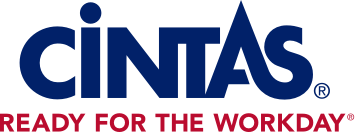If a Fire Emergency Happened, Would You Be Ready?
A business can be hit with a fire at any time and the negative impacts of this can be staggering, from possible injury and death, to the expense of property damage, fines, higher insurance premiums and lost sales caused by business disruption.
With so much at stake, it really does pay to be prepared — and one of the best ways you can do that is by having a well-documented fire prevention plan. This plan details the steps your business can take to prevent a fire from happening at your workplace, and helps avoid confusion by listing the procedures to follow if an emergency does occur. It also reassures your employees of your commitment to safety.
Once you’ve established your fire prevention plan, it’s important to make sure your employees are aware of it by having them read through it carefully. Training your team on your plan is also imperative, because business owners are responsible for ensuring that employees understand all established safety procedures.
A solid fire prevention plan should have:
- A list of all potentially hazardous materials and fuel sources on site that could initiate or contribute to the spread of a fire along with proper handling and storage procedures for these hazardous materials.
- The type of fire protection necessary to control each major hazard.
- A list of where important fire control systems are located in your building, including fire extinguishing systems and alarm systems.
- The procedures to follow if a fire does happen— including notifying fire departments, sounding a fire alarm and evacuating building occupants.
- Detailed maintenance procedures for your fire protection systems, including maintenance of safeguards installed on heat-producing equipment.
Other important fire prevention tips:
Establish a fire emergency evacuation plan. Responding to an emergency will be easier and less confusing if everyone knows their respective duties. Your plan should provide details on how to respond and the best path of egress. If you have employees with special needs, those details should also be addressed.
Maintain your emergency and exit lights. Fully operational emergency and exit lights are critical for lighting the way during an emergency. To help detect broken parts or burned out bulbs before an emergency happens, checking your lights monthly and having an annual inspection is recommended for routine maintenance. It’s also recommended to test your emergency backup power regularly.
Train your team on fire extinguishers. Fire extinguishers help put out a small fire before it gets out of control, and they also help building occupants get to safety before professionals arrive. It’s imperative that your employees are trained on how to properly use a fire extinguisher — including knowing extinguisher locations and safe evacuation routes.
Steer clear of common fire hazards. Careful daily housekeeping can go a long way toward preventing a fire. One of the biggest steps you can take is to clean up flammable materials immediately, including chemical spills and oil. Store all trash and packing materials in metal containers with tight lids, and make sure that extra equipment is kept in designated areas that are clear of aisles or fire exits.
Assign a fire emergency response team. These designated team members should be trained and educated in fire emergency procedures and should know how to guide others to safety. They can also oversee fire safety methods — such as deciding how often to conduct fire drills in your building— and be responsible for maintaining equipment.
Enlist a certified fire protection company to manage your program. According to the Occupational Health and Safety Administration (OSHA), businesses are required to have fire protection systems and plans in place. But keeping track of all your fire equipment, as well as their multiple service dates and locations, can feel overwhelming to handle on your own. Licensed and certified professionals can take this off your plate, by performing on-site inspections, safety tests, maintenance and equipment repairs.
Remember: the time to learn preventive procedures isn’t during an emergency. Having fire prevention guidelines in place beforehand is an important part of keeping your business and your employees prepared and protected.
